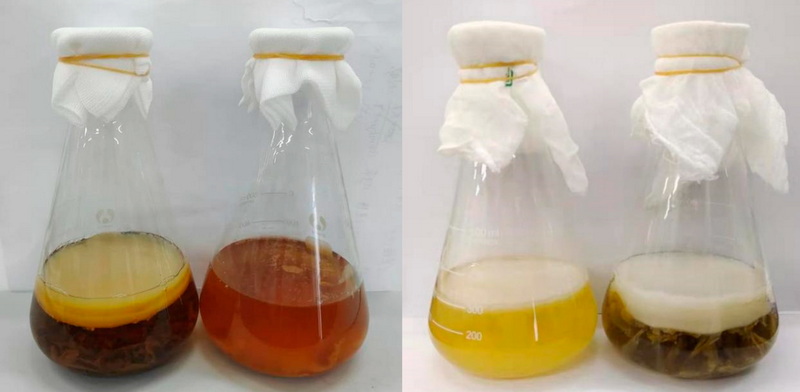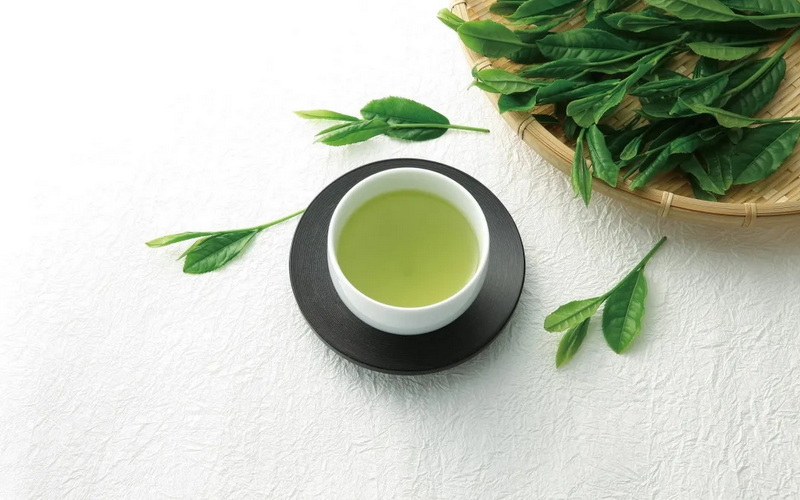Content Menu
● Introduction to Green Tea and Yeast
>> Green Tea Composition
>> Brewers Yeast Requirements
● Potential Effects of Green Tea Extract on Yeast
>> Nutritional Contributions
>> Antioxidant Properties
>> DNA Repair Mechanisms
● Practical Applications
>> Fermentation Efficiency
>> Flavor and Aroma
● Experimental Evidence
● Challenges and Considerations
>> Concentration and Timing
>> Interactions with Other Ingredients
● Future Directions
● Conclusion
● FAQ
>> 1. What nutrients does green tea provide that could benefit yeast growth?
>> 2. How does the antioxidant activity of green tea affect yeast?
>> 3. Can green tea extract improve DNA repair in yeast?
>> 4. How might green tea extract affect the flavor and aroma of fermented products?
>> 5. What are the potential challenges of using green tea extract in brewing?
● Citations:
The relationship between green tea extract and brewers yeast growth is a fascinating area of study, combining the nutritional benefits of green tea with the fermentation capabilities of yeast. This article will delve into the potential effects of green tea extract on brewers yeast, exploring both theoretical and practical aspects.

Introduction to Green Tea and Yeast
Green tea is renowned for its high content of antioxidants, particularly catechins like epigallocatechin gallate (EGCG), which have been shown to have various health benefits. Yeast, specifically brewers yeast, plays a crucial role in fermentation processes, converting sugars into alcohol and carbon dioxide.
Green Tea Composition
Green tea contains a variety of compounds, including:
- Catechins: EGCG, EGC, ECG, and EC.
- Caffeine: Though less than black tea.
- Amino Acids: Such as theanine.
- Vitamins: Like vitamin C and B vitamins.
These components contribute to its antioxidant properties and potential biological activities.
Brewers Yeast Requirements
Brewers yeast, typically Saccharomyces cerevisiae, requires specific nutrients for optimal growth and fermentation:
- Carbohydrates: Glucose, fructose, maltose, and maltotriose.
- Nitrogen Sources: Amino acids, peptides, and ammonium salts.
- Vitamins: Biotin and pantothenic acid.
- Minerals: Phosphate, potassium, magnesium, calcium, sulfur, and zinc.
Potential Effects of Green Tea Extract on Yeast
Nutritional Contributions
Green tea extract could potentially enhance yeast growth by providing additional nutrients. For instance, its amino acid content might supplement the nitrogen sources available to yeast, promoting healthier growth and fermentation efficiency. The vitamins present in green tea could also support yeast metabolic processes, although the exact impact would depend on the specific composition of the extract and the brewing conditions.
Antioxidant Properties
The antioxidants in green tea could protect yeast cells from oxidative stress, potentially improving their viability and fermentation performance. However, the direct impact of these antioxidants on yeast growth is less clear and requires further investigation. Oxidative stress can occur during fermentation due to the production of reactive oxygen species (ROS), which can damage cellular components. By mitigating this stress, green tea extract might help maintain yeast health over longer fermentation periods.
DNA Repair Mechanisms
Studies have shown that green tea extract can enhance DNA repair mechanisms in yeast, which could theoretically improve yeast resilience and longevity during fermentation. This is particularly relevant for maintaining genetic stability under stress conditions, such as high temperatures or ethanol concentrations. Enhanced DNA repair could ensure that yeast populations remain robust and consistent throughout the brewing process.

Practical Applications
Fermentation Efficiency
In practical brewing scenarios, the addition of green tea extract might influence fermentation efficiency. The antioxidants and nutrients could support yeast health, potentially leading to more consistent and robust fermentation processes. This could result in beers with more predictable flavor profiles and better overall quality.
Flavor and Aroma
Green tea extract could also affect the flavor and aroma of fermented products. The introduction of green tea compounds might enhance the sensory qualities, although this would depend on the specific brewing conditions and desired outcomes. For example, the astringency and bitterness from green tea catechins could complement certain beer styles, such as pale ales or IPAs, while potentially overpowering others.
Experimental Evidence
While there is some evidence suggesting green tea can enhance yeast fermentation in certain contexts, such as tea wine production, direct studies on brewers yeast are limited. Most research focuses on the health benefits of green tea rather than its effects on yeast. However, experiments involving the addition of green tea extract to brewing processes have shown promising results in terms of fermentation efficiency and product quality.
Challenges and Considerations
Concentration and Timing
The concentration of green tea extract and the timing of its addition during brewing could significantly affect yeast growth and fermentation outcomes. Too high a concentration might inhibit yeast activity, while too low might have negligible effects. The optimal concentration would likely depend on the specific brewing conditions and the desired impact on flavor and fermentation.
Interactions with Other Ingredients
Green tea extract could interact with other brewing ingredients, such as hops or grains, in complex ways. These interactions might alter the final product's flavor, aroma, or nutritional content. For example, the bitterness from green tea could complement or clash with hop bitterness, depending on the hop varieties used.
Future Directions
Further research is needed to fully explore the potential benefits and challenges of using green tea extract in brewing. This includes studying the optimal concentrations and timing of green tea extract addition, as well as its interactions with other brewing ingredients. Additionally, investigating the impact of green tea on yeast stress resistance and genetic stability could provide valuable insights into improving fermentation efficiency and product quality.
Conclusion
While green tea extract shows promise in enhancing yeast health and fermentation efficiency through its nutritional and antioxidant properties, direct evidence supporting its use in brewers yeast growth is limited. Further research is needed to fully understand the potential benefits and optimal application methods. However, the potential for green tea to enhance brewing processes and product quality makes it an intriguing area for continued exploration.

FAQ
1. What nutrients does green tea provide that could benefit yeast growth?
Green tea contains amino acids, vitamins, and minerals that could supplement the nutritional requirements of yeast, potentially enhancing growth and fermentation efficiency.
2. How does the antioxidant activity of green tea affect yeast?
The antioxidants in green tea may protect yeast cells from oxidative stress, potentially improving their viability and fermentation performance.
3. Can green tea extract improve DNA repair in yeast?
Yes, studies have shown that green tea extract can enhance DNA repair mechanisms in yeast, which could improve yeast resilience during fermentation.
4. How might green tea extract affect the flavor and aroma of fermented products?
Green tea extract could introduce new flavor and aroma compounds into fermented products, potentially enhancing their sensory qualities.
5. What are the potential challenges of using green tea extract in brewing?
Challenges include determining the optimal concentration and timing of green tea extract addition, as well as managing interactions with other brewing ingredients.
Citations:
[1] https://www.frontiersin.org/journals/nutrition/articles/10.3389/fnut.2022.931790/full
[2] https://www.beer-brewing.com/beer_brewing/beer_brewing_brewers_yeast/yeast_nutritional_requirements.htm
[3] https://pubmed.ncbi.nlm.nih.gov/30846712/
[4] https://pmc.ncbi.nlm.nih.gov/articles/PMC9941558/
[5] https://www.craftmasterstainless.com/blog/2025/1/31/factors-that-impact-yeast-viability-in-brewing
[6] https://pmc.ncbi.nlm.nih.gov/articles/PMC6405770/
[7] https://pmc.ncbi.nlm.nih.gov/articles/PMC10865231/
[8] https://www.agilent.com/cs/library/applications/monitoring-growth-of-saccharomyces-cerevisiae-5994-3284EN-agilent.pdf






























